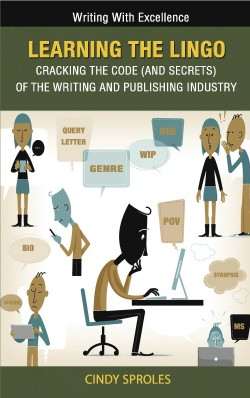The fifteen minutes an author is given in the presence of an agent or publisher is vitally important. Learning how to make the most of the time with these industry folks should be a defining moment for the author. You want agents and publishers to walk away with a “memorable” moment.
Before you arrive at a conference, choose the WIP you plan to pitch. Write your pitch and practice it. Your pitch should be the one thing you can bolt out of a dead sleep and recite without hesitation so practice, practice, practice.
Come prepared with business cards…please! When the time arrives for you to sit across the table from an agent/editor, be polite. Remember these professionals are there to talk with you so make every word count.
Before you sit, extend your hand and offer a strong handshake. Please don’t give any professional (editor or not) a fishy handshake. Your handshake is your first impression and it should be one of confidence, not wimpy.
Give your name and exchange a few seconds of pleasantries. Relax, take a deep breath then ask, “May I show you my work in progress?” The agent/editor will then let you know their procedure. Some will quickly skim your one-sheet; others will ask you specific questions. Be flexible and, again, be prepared.
Come to the table with:
1) business cards that contain your contact information and email address;
2) one-sheets;
3) proposals, if your book is complete. I recommend you paper clip these items together in a file folder so when you sit down you can open the file folder and remove one set, unclip it and have at your fingertips all you need to chat with the agent/editor.
I cannot stress enough, the importance of having this information ready when you sit across the table. Do not waste valuable time upside down, digging in your brief case. In fact, leave your brief case at the door. Sit down at the table with simply a folder, pen, and sheet of paper in hand.
Be familiar with what the agent/editor represents. You don’t want to pitch devotions to a romance editor. Before conferences begin there are faculty pages and information on those who are making appointments. Know who and what the person you want to talk with represents.
If an agent/editor remarks that your work needs improvement or is not “quite ready yet,” don’t argue. Be professional. Arguing is, at best, rude and it shows your immaturity as a writer. Think. Be the bigger, better one, not the one who argues. Instead, request they make suggestions for improvements. Remember, the publishing industry is small and tight-knit. Agents and editors move from house to house frequently. They talk. Don’t leave a sour taste that will follow them wherever they go and cost you in the long run.
Should an agent/editor request your work, ask how they’d like to receive it. Most prefer email submissions.
Ask for their card and how they’d like you to tag the subject line in your email. Do they prefer a doc as an attachment or do they want it in the body of the email? These are important items and you need to make your submission work for you long before it’s read.
Stay on time. Appointments are tight at conferences. Be courteous to the person across the table and to those authors waiting in line. Stay within your window of time.
It’s not rude for you to lay your watch on the table and even note aloud the time your appointment ends.
Should the agent/editor choose to read some of your work while in your presence…please sit quietly. It’s awkward at best, and those two or three minutes feel like a lifetime; but be silent. Let them read. They are skimming your work for important elements that stand out. If you are wiggling in your seat, asking questions, explaining your work, or simply chatting, they cannot think clearly.
Finally, when your appointment is complete, thank them for their time. Offer them your card and walk away.
Don’t ask them if you can leave your work in progress, proposal, or one-sheet. If they are interested, they’ll ask. Keep in mind, airlines are allowing less and less on board the plane and weight limits are now beginning to be enforced for overhead compartments. When an agent/editor walks away with a handful of manuscripts, it can add three-five pounds to their luggage. They will ask if they want you to physically leave papers for them.
Otherwise, plan to email what they request. And by the way, if they ask for your work…SEND IT. I cannot tell you the number of times I’ve asked for work from authors and they’ve never sent the first page. That’s a waste of the agent/editor’s time if you don’t follow through.
(excerpt from Learning The Lingo: Cracking the Code (and secrets) of Writing and Publishing)

I was impressed by a gal who pitched to me last weekend – she started telling me her story as if the people were her dearest friends. Drew me in and made me want to have that manuscript! She had confidence and loved her characters and her passion for her work showed.